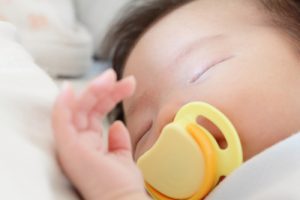 The number of babies dying of suffocation before their first birthday has been rising in recent years, driven at least in part by an increase in the number of parents sharing beds with their infants, a U.S. study suggests.
The number of babies dying of suffocation before their first birthday has been rising in recent years, driven at least in part by an increase in the number of parents sharing beds with their infants, a U.S. study suggests.
From 1999 to 2015, the suffocation death rate for babies younger than 1 year climbed from 12.4 to 28.3 fatalities for every 1,000 U.S. infants, researchers report in Pediatrics.
In 2015 alone, this translated into 1,100 infant deaths that were entirely preventable. The majority of these suffocation fatalities occurred while babies were in bed.
“It may be that parents are not following `safe sleep’ recommendations to place infants in beds without stuffed animals, soft blankets, pillows, and other items that could cause suffocation,” said study co-author David Schwebel of the University of Alabama at Birmingham.
“It may also be that we have dangerous items on the market and in our homes, and they need to be removed,” Schwebel said by email.
 Suffocation and strangulation deaths increased across the board for boys and girls regardless of race, ethnicity or whether they lived in urban or rural communities, the study found.
Suffocation and strangulation deaths increased across the board for boys and girls regardless of race, ethnicity or whether they lived in urban or rural communities, the study found.
At least some of the increase in suffocation deaths might be due to a change in how these fatalities are categorized, researchers note.
Some fatalities that were attributed to sleep-related causes like sudden infant death syndrome (SIDS) at the start of the study might have been categorized as accidental suffocation and strangulation in bed by the end of the study period.
“I think the suffocation and strangulation deaths are increasing due to the diagnostic shift,” said Dr. Jeffrey Colvin of Children’s Mercy Kansas City.
“There has also been an increase in bed sharing,” Colvin, who wasn’t involved in the study, said by email.
While keeping infants in the same room but in a separate crib may help reduce the risk of suffocation and strangulation, parents have to consider risks that go beyond just intentional bed sharing, Colvin said.
“It also means not accidentally falling asleep with your baby,” Colvin advised. “It also means removing objects from the infant’s crib or bassinet because all of the quilts, blankets, toys, and pillows are suffocation hazards.”
SIDS deaths are still far more common than strangulation and suffocation fatalities and are the most common cause of sleep-related fatalities, noted Dr. Lori Feldman-Winter, a professor of pediatrics at Cooper Medical School of Rowan University in Camden, New Jersey.
Bed-sharing is rising the most among black and Asian American families, and these are also populations with the highest rates of sleep-related infant deaths, Feldman-Winter, who wasn’t involved in the study, said by email.
“The safest place for a baby to sleep is in a crib or bassinet or play yard in the same room with the parents, not in the same bed,” Feldman-Winter said.
Babies are safest sleeping on their backs in their own cribs without any pillows, toys, blankets or other loose bedding. If babies do sleep in parents’ beds, parents should have a firm mattress, remove soft objects such as pillows, and move the bed away from the wall, according to guidelines from the American Academy of Pediatrics.
Parents should also be aware that bed sharing is most dangerous for newborns less than 4 months old, preemies and underweight infants, or if babies were exposed to tobacco during or after pregnancy.
“They need to know that the evidence shows that sleeping in the same bed is hazardous, and while there may be things that can be recommended to make this sleeping arrangement safe, we don’t have the studies or data to determine what they are,” Feldman-Winter cautioned.





